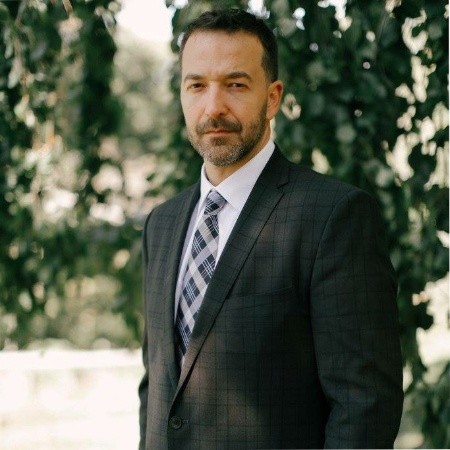
The power of jeans
FICTION - Part 1 of this story reminds us that the role of leaders in an organization is to set the example for others, behaving the way they want the rest of the company to behave.
Words: Edward Blackman and Hannah Hutson
Terry glanced at his phone again, double checking that it was, in fact, 3pm and he was on time for his initial coaching session with Jude Ward, recently appointed CEO of Acme. He didn’t miss the exhaustion of a full day of video conferences, but traveling across the country and time zones again for coaching sessions left him feeling never quite sure what time it was.
At the sound of a door clicking open, he looked up from his phone to see Jude standing in the doorway of their office, inviting him in. After a warm handshake and exchanged greetings, Jude sat down at their desk with a wry smile.
“It’s good to see you again, Terry. I’m grateful I could convince you to jump ship and join me at Acme. We certainly have our share of struggles that we could use your help with.”
Terry gave a dismissive shake of his head. “You’re a great leader and learner. I was honored you asked me to move from Kelda Incorporated to Acme. But you’ve had a three month head start on me - will you give me a lay of the land here and tell me more about the problems you’re seeing?”
Jude held up their hand, motioning Terry to pause.
“We can get to that in a minute. I want to talk about the ‘homework’ you assigned me last week. I appreciate that it was a podcast and short article this time, instead of your usual tomes of archaic Lean knowledge, but I have a bone to pick with you about some of the things I heard in the NUMMI podcast and HBR article.”
Terry opened his mouth, about to object to the ‘tomes of archaic Lean knowledge’ comment before Jude cut him off.
“Don’t get me wrong, the story was great, and I love Ira Glass as much as the next This American Life fan, but I have some doubts about how practical the NUMMI example is to Acme. We’ll ignore the fact that somehow GM and Toyota managed to work together despite being competitors. I want to talk about how implementing the Toyota Product System and Continuous Improvement principles managed to completely transform the worst GM plant in only a year - even with employees that were dealing drugs in the parking lot!”
They paused, resting their chin on their hand and frowning.
“It’s an inspiring and entertaining story, certainly, but it hardly seems realistic or applicable to what we’re facing at Acme. We’ve been on a Lean journey for over ten years and we haven’t seen anything close to the results they saw at NUMMI. And lord knows Acme has had its share of oversight panels, committees, CI binders and consultants." Jude shot a briefly apologetic glance at Terry, smiling. “No offense intended. But Acme certainly hasn’t seen dramatic behavior change, and our basic plant and company KPIs of Safety, Quality, Delivery Financials, and People have barely moved.”
Terry smiled, recognizing the KPI coaching he did with Jude had made an impression by the way they rattled off the KPIs in the same priority order he had taught them years ago.
“You want to know the secret to how Acme’s ten years of CI is drastically outperformed by one year of CI at NUMMI? It’s simple. They wore jeans.”
Jude gave an exasperated sigh and leaned back in their chair. “You know I hate it when you do that.”
“Do what?”
“Don’t give me that.” They narrowed their eyes at him.
“You’re welcome to just hurry up and tell me the weirdly specific parable so I can feel stupid for not getting the point sooner. Then we can skip ahead to the part where we start applying the philosophy to the actual Acme transformation strategy.”
Terry smiled. “But the parable is my favorite part!” He had worked with Jude for long enough at previous companies to tell that their annoyance was covering genuine anxiety. The situation at Acme must be worse than he had originally thought. He held up both hands, placating.
“Fair enough. I’ll make the parable shorter this time. Do you remember back at Kelda Inc when you were COO and the HR department finally issued a new dress code policy to allow jeans as acceptable ‘business casual’ clothing?”
Jude frowned, trying to follow his point. “Yeah? So what? It took forever for them to finally stop acting like ‘Jeans Friday’ was some kind of huge sacrifice that employees should be grateful for and just change the dress code policy.”
Terry snorted. “I worked with a few of the HR people there. I don’t think they’d agree with you. Anyways, even if the change to the policy was overdue, do you remember that even after the head of HR sent out the email, not a single person actually wore jeans? No one! At least, not until a crucial event happened. A key causal variable.”
“I don’t think anyone would put ‘crucial event’ and ‘jeans’ in the same sentence.”
“No, it was! You can laugh at me all you want, but it made a big difference to the culture at Kelda Inc. The crucial event I’m referring to was when the COO showed up to a meeting at work wearing jeans.”
Jude raised an eyebrow. “It’s weird when you refer to me just as my title, but I’ll bite. What was so crucial about that? I got the same announcement email as everyone else. And honestly, the old policy about ‘business casual’ was incredibly outdated and gendered. When I first joined, they tried to make me wear pantyhose. Can you believe it?”
Terry felt a brief moment of pity for the HR rep who had drawn that short straw. “I’m not disagreeing, but I think that maybe I spent a bit more time in the hallways and break rooms than you did. I overheard an employee saying, and I quote - ‘Did you see the COO? They were wearing jeans! And not even nice jeans, just a pair of Levis’.” He raised a hand, cutting off the retort he knew was coming about how Levis were perfectly nice jeans.
“That story, and many others like it, spread throughout Kelda Inc in just a couple of days. By Monday of the next week, there were several brave employees who showed up to work in jeans. Within a month, most people wore jeans to work.”
He leaned back in his chair. “There. Parable over. Time for your reflection. What do you think?”
Jude shrugged. “Well, firstly, I had no idea that happened. Secondly, I’m not sure I’d call it a ‘parable’. It seems so small. I didn’t set the policy, HR did. I was just following the new rules. Anyone else was free to wear jeans at that point, it’s not like they would get in trouble for it by then.”
They paused, noticing the small smile on Terry’s face.
“No, shut up. I recognize that look on your face. Give me a second to have my first thoughts, I know there’s a message in there.” They sighed, staring at the desk for a second.
“Okay. My second thoughts are, and I really don’t like thinking about myself like this, but if I stop thinking of myself as just a person and think about how the employees at a place would view someone with the title of COO, then I can admit that my actions and behaviors might have a bigger impact on employees simply because I’m an executive.” Jude saw Terry’s expression change and laughed.
“See! It’s been a while, but I can still have second reflections on your parables.” They paused, frowning again.
“As much as I don’t like to think of myself as being particularly hierarchical, I can acknowledge that’s the kind of thinking you’d see in mature CI companies. It should be that the originator of an idea doesn’t define its value. The ideas of front-line staff should receive the same kind of vetting and consideration that an idea from a COO or CIO. However, that isn’t the reality for immature CI companies. People are very sensitive to titles and are expecting an idea from a lower rank employee to be dismissed easily, and even bad ideas from a VP might be immediately considered valuable.”
Jude looked at Terry. “Is that really it? It comes down to the classic ‘Do as I say, not as I do’? Is it all really just fear and hierarchy?”
“It’s precedent.” Terry shook his head, leaning forward. “Try out one of Einstein’s thought experiments (AKA: Gedanken). What’s the first company you worked at fresh out of college?"
Jude’s response was immediate. “Lirael’s Pharmaceuticals.”
“Right. And you remember their CEO? Imagine if she showed up at a plant, but wasn’t wearing PPE (Personal Protective Equipment), like safety glasses. Would anyone have confronted her on it?"
They snorted. “Of course not! Everyone would have been too scared. Even I would have been too scared - I may have been fresh out of college, but I could recognize a CLD when I saw one.”
“Ah, yes, a Career Limiting Decision.” Terry laughed. “There were lots of unspoken CLDs at places like Lirael’s Pharmaceuticals. Now, imagine that same situation - CEO walks into a plant without safety glasses. But this time, there’s a new Safety Manager who stops her and gently reminds her of the safety policy and directs her to the PPE cabinet. Then waits for her to get her PPE and be safety compliant before she can continue the tour.”
At Terry’s pause, Jude, remembering their experience working with the CEO, had a moment of silent sympathy for the imaginary Safety Manager.
Terry continued. “However, in that moment where everyone at the plant is holding their collective breath, instead of the inevitable ‘How dare you! Don’t you know who I am?’ they’re all waiting for, the CEO says ‘Thank you’ instead.”
“A small miracle,” Jude murmured.
“Maybe then. But imagine if the CEO told the Safety Manager, ‘If more people collectively took responsibility for the safety of our plants like you just did in reminding me, our entire company would be a lot safer. I’ll go get my safety glasses, and then could someone take a picture of us both to include in the weekly newsletter with an article on safety?’”
“The newsletter would be redundant. If that happened, half the company would know about it by lunchtime.”
Terry just smiled, and after a moment, Jude groaned.
“See! I hate when you do that. I walked right into the obvious again. That safety policy had been in place as long as the plant existed, but without leaders demonstrating the behaviors, it doesn’t really mean anything. In fact, in immature CI companies like that, the opposite is true. If the CEO responded how she usually did, it just reinforced the exact opposite behavior of the policy.”
“Exactly” Terry held up a hand. “Now you know how much I love to talk about Behavior Science, but it describes a basic rule that applies here. Leaders must demonstrate the behaviors they desire in others in order to actually perpetuate any systemic change.”
“Now, you know what’s coming next.” He smiled at Jude, who after years of coaching, had realized what was coming next and already started pulling out their whiteboard markers.
“Time to get back to your original comment about the drastic difference between the NUMMI transformation and Acme. What do you think Toyota did differently than Acme on their CI journey with NUMMI?” He stood, walking over and gesturing to the whiteboard.
“Please start by showing your thinking. Draw out a standard org chart, with the hierarchy of staff, manager, VP, etc. on the left side of the org chart, create a column titled ‘NUMMI’ and on the right side, one titled ‘Acme’.”
HOLD FOR PART 2
THE AUTHORS


Read more


COLUMN - In political terms, is lean management more in line with conservative principles or progressive ideas? Michael Ballé reflects on a tough question.


NEWS - By offering tours of best-in-class companies and bespoke training to MBA students from Moscow State University's Business School, LGN's Turkish affiliate is helping to spread lean thinking in Russia.


WOMACK’S YOKOTEN – This month, the author looks at the production line, a century-old idea that still fascinates us, reflecting on how lean thinking has changed it.


FEATURE - Traditionally seen as the mother of all evil, the IT department in our organizations has a long way to go before it fulfils its potential and becomes an actual facilitator in the delivery of excellent products and services. In the past few years, IT leaders have realized that lean management can help them to transform the function.
Read more


FEATURE – We all want to create a lean culture in our organizations, but what makes cultural change possible? And, more importantly, what are the leadership behaviors that enable a new culture to take root?


FEATURE – There are five dimensions to a lean transformation – purpose, process, people, management behaviors, and mental models – and it is the role of leadership to adjust its stance to each of them.


RESEARCH – The author explores the effectiveness of five common managerial practices in driving a corporate lean initiative forward, analyzing the data gathered while visiting 36 factories of a large corporation.


FEATURE – Using Carol Dweck’s distinction between fixed and growth mindsets, the author discusses how leaders should think and act to make lean possible. Looks like no fixed mindset is beyond saving.

